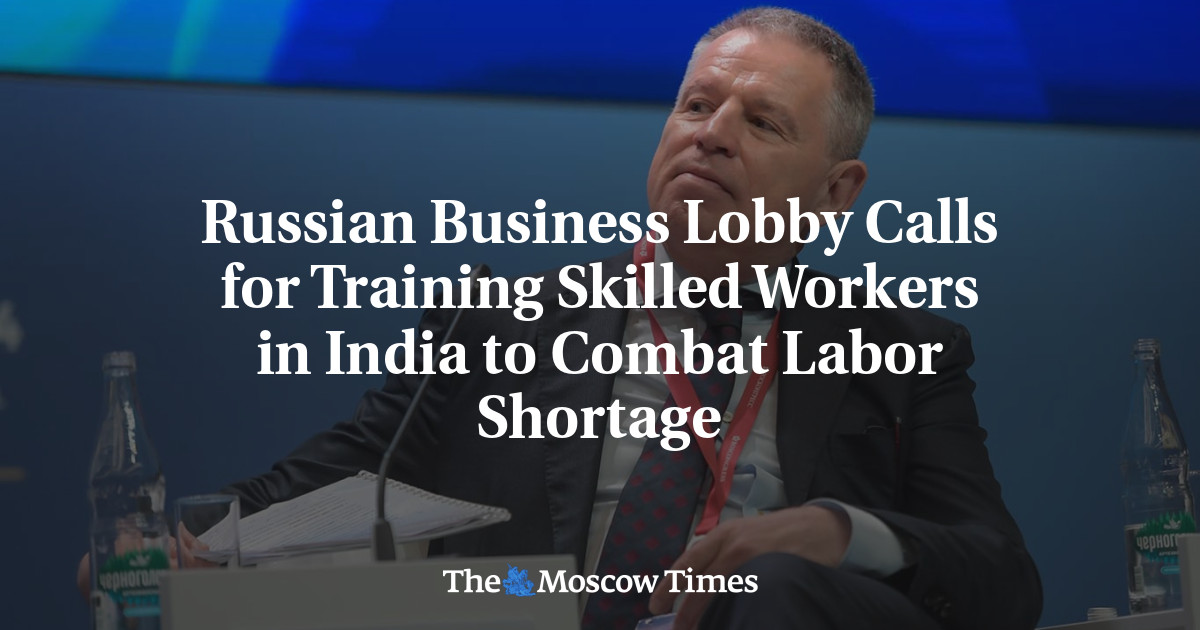

Russia is increasingly looking towards India to help alleviate its growing labor shortage, exploring the possibility of training skilled workers in India for employment within Russian companies. This initiative comes as Russia faces a confluence of factors that have significantly tightened its labor market, including demographic decline, the impact of the war in Ukraine, and rising anti-migrant sentiment.
The proposal to train Indian workers for the Russian job market was recently highlighted at the St. Petersburg International Economic Forum (SPIEF), where Andrei Komarov, a board member of the Russian Union of Industrialists and Entrepreneurs, identified India as a "natural partner" for such an initiative, citing India's workforce training expertise and the friendly political relations between the two countries. Education Minister Sergei Kravtsov has voiced support for the proposal, noting interest from other countries in Russia's vocational education system.
Russia's labor shortage has become a critical issue, with estimates suggesting a shortfall of nearly 5 million workers in 2023. The problem has been exacerbated by the mobilization of workers into the armed forces and defense industries, as well as the emigration of skilled professionals following the invasion of Ukraine and subsequent Western sanctions. Traditional sources of migrant labor from former Soviet republics are no longer sufficient to meet demand. Furthermore, increased hostility towards Central Asian migrants, who have historically filled many roles in sectors like construction and agriculture, has added to the urgency of finding alternative labor sources.
The discussions between India and Russia regarding workforce training are not new. In November 2024, Russia's First Deputy Prime Minister Denis Manturov announced that the two countries were in talks to prepare Indian workers with skills through Russian vocational training programs, with the aim of facilitating their employment in Russian companies. This announcement was made during the 25th India-Russia Intergovernmental Commission session, where both sides also discussed plans for future collaboration in various sectors.
The potential for collaboration extends beyond general workforce training. The two countries have a history of cooperation in education, including agreements to establish a joint working group focused on vocational education and training (VET), increasing student mobility, and working towards mutual degree recognition. A joint statement released after Prime Minister Narendra Modi's visit to Moscow emphasized the "immense potential for expanding student exchanges, cooperation in vocational training and training of engineers, teachers and other specialists."
Several factors make India an attractive partner for Russia in addressing its labor shortage. First, India has a large and growing workforce, with a significant pool of skilled and semi-skilled workers. Second, the Indian government has been actively promoting skills development through various initiatives, including the Indian Technical and Economic Cooperation (ITEC) Programme, which provides training courses in various fields to professionals from partner countries. Third, many Indian workers are seeking overseas employment opportunities due to factors such as low income levels and a lack of quality employment options in their home country.
While the prospect of training Indian workers for the Russian job market holds promise, there are also challenges to consider. Language barriers, cultural differences, and the need to ensure fair labor practices and decent working conditions for foreign workers will be crucial. Some reports have highlighted instances of exploitation and poor treatment of migrant workers in Russia, underscoring the importance of robust oversight and protection mechanisms. Despite these challenges, the initiative reflects Russia's recognition of the need to diversify its labor sources and tap into the potential of international partnerships to address its pressing workforce needs.